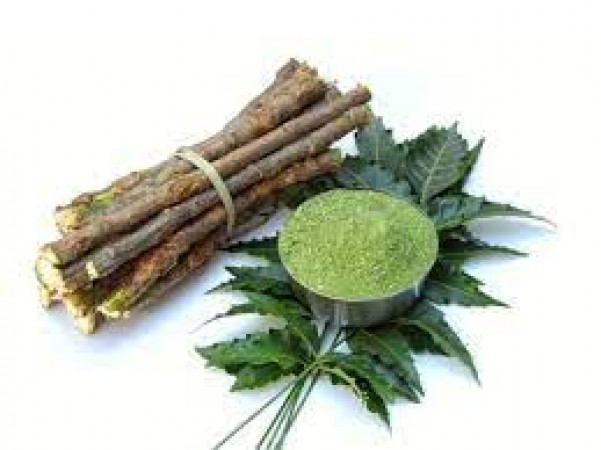
Neem, scientifically known as Azadirachta indica, is a tree native to the Indian subcontinent and has been revered for its medicinal properties for centuries. Among its various parts, neem leaves stand out for their exceptional health benefits.
Traditional Wisdom and Modern Science
Neem's medicinal properties have been recognized for millennia, deeply ingrained in the traditional systems of medicine such as Ayurveda. Ayurvedic texts describe neem as "Sarva Roga Nivarini," meaning the cure for all ailments. This reverence for neem extends beyond Ayurveda; it is also celebrated in traditional medicine systems like Siddha and Unani.
In recent years, modern scientific research has delved into the bioactive compounds present in neem leaves, shedding light on the mechanisms behind their therapeutic effects. These studies have identified a plethora of compounds, including nimbin, nimbidin, quercetin, and azadirachtin, which contribute to neem's pharmacological properties.
The Power of Neem Leaves
1. Antibacterial Properties
One of the most notable benefits of neem leaves is their potent antibacterial activity. Research has shown that neem extracts exhibit inhibitory effects against a wide range of bacteria, including Staphylococcus aureus, Escherichia coli, and Pseudomonas aeruginosa. These antibacterial properties make neem leaves an effective remedy for various skin infections, such as acne, boils, and fungal infections.
2. Anti-inflammatory Effects
Neem leaves contain compounds like nimbidin and nimbin, which possess significant anti-inflammatory properties. These compounds inhibit the production of inflammatory mediators in the body, thereby reducing inflammation and providing relief from conditions like arthritis, gastritis, and inflammatory skin disorders.
3. Immune System Support
Regular consumption of neem leaves can boost the immune system, enhancing the body's ability to defend against infections and diseases. Neem's immunomodulatory effects stimulate the activity of immune cells, such as macrophages and lymphocytes, strengthening the body's natural defense mechanisms.
4. Blood Purification
Neem leaves are renowned for their ability to purify the blood and detoxify the body. The detoxifying properties of neem help eliminate toxins and impurities from the bloodstream, promoting overall health and vitality. Additionally, neem leaves are believed to support liver function, further aiding in the detoxification process.
5. Dental Health
Chewing neem leaves is a time-honored practice for promoting dental hygiene. The antibacterial properties of neem help combat oral pathogens, reducing the risk of cavities, plaque formation, and gum disease. Additionally, neem leaves have been used traditionally to alleviate toothache and freshen breath.
How to Consume Neem Leaves
1. Fresh Neem Leaves
When using neem leaves for their medicinal benefits, it is advisable to use fresh, tender leaves that are free from blemishes or damage. Fresh neem leaves contain higher concentrations of bioactive compounds and are more potent than dried leaves.
2. Chewing Method
To derive maximum benefit from neem leaves, it is essential to chew them thoroughly, ensuring that the leaves are crushed to release their juices. Chewing neem leaves releases the bioactive compounds present in the leaves, allowing for better absorption and efficacy.
3. Bitter Taste
Neem leaves have a distinctly bitter taste, which can be off-putting to some individuals. However, it is essential to embrace the bitterness, as it is indicative of the leaves' medicinal potency. Over time, many people develop a tolerance to the bitterness of neem leaves.
4. Masking the Taste
For those who find the taste of neem leaves too bitter to bear, there are several strategies to make them more palatable. Mixing neem leaves with honey, jaggery, or other sweeteners can help mask the bitterness while still allowing you to reap the benefits of this potent medicinal herb.
Precautions and Considerations
1. Pregnancy and Breastfeeding
While neem leaves are generally considered safe for most individuals when consumed in moderation, pregnant and breastfeeding women should exercise caution. Some compounds present in neem may have uterine-stimulating effects, which could potentially lead to complications during pregnancy.
2. Blood Sugar Levels
Individuals with diabetes should monitor their blood sugar levels closely when consuming neem leaves, as they may lower blood glucose levels. It is advisable to consult a healthcare professional before incorporating neem leaves into the diet, especially for those on diabetes medications.
3. Allergic Reactions
Although rare, some individuals may experience allergic reactions to neem leaves. Symptoms of an allergic reaction may include itching, swelling, redness, or difficulty breathing. If you experience any adverse reactions after consuming neem leaves, discontinue use immediately and seek medical attention.
Chewing neem leaves is a simple yet powerful way to harness the medicinal properties of this revered plant. Whether used for its antibacterial, anti-inflammatory, immunomodulatory, or detoxifying effects, neem leaves offer a natural remedy for a wide range of ailments. By incorporating this age-old practice into your daily routine, you can promote your overall health and well-being in a holistic and sustainable manner.
These great economical cars are available with diesel engine, see the complete list
Feeling Stressed Before a Job Interview? Here's How to Keep Yourself Calm